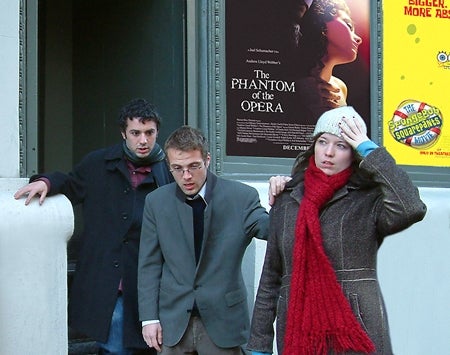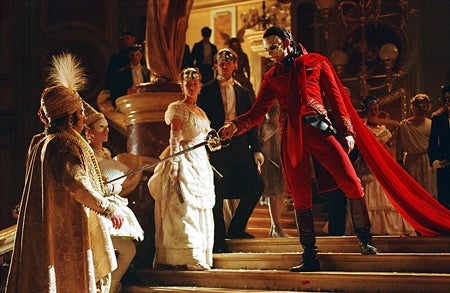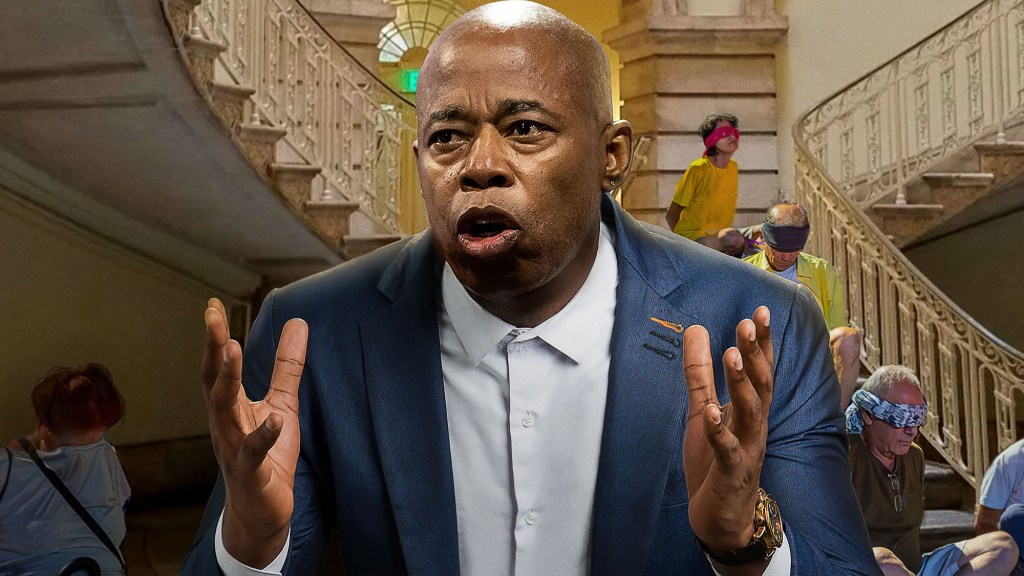HOLLYWOOD—Psychiatrists in select cities nationwide have reported a surge in Post-Melodramatic Stress Disorder cases following the Dec. 22 release of Andrew Lloyd Webber’s The Phantom Of The Opera.
“We’re seeing a barrage of psychological consequences in those who have been exposed to the violently overblown acting and protracted, heightened emotions in The Phantom Of The Opera,” said Bill Lambert, a psychology professor at the University of Chicago. “After such intense abuse of their artistic sensibilities, melodrama victims are finding themselves plagued by extreme sentimentality, flashbacks to especially torturous scenes, and canned-emotional detachment.”
According to Lambert, a good portion of PMSD sufferers are experiencing distress so great that it is interfering with their jobs as overweight receptionists, struggling fashion designers, and community-theater actors.
“PMSD sufferers walk through their days with the specter of an unnecessary musical number hanging over them like a mask,” Lambert said. “The prelude is constantly playing in their unconscious minds, threatening to crescendo into exaggerated, choreographed action at any moment. Anything can set them off: a chandelier, a strain of saccharine music, a gaudy outfit.”
According to Lambert, PMSD victims are vulnerable to further emotional manipulation.
“Those who have witnessed Phantom often tend to leave themselves open to additional emotional battery, whether in the form of another vapid musical or a book of heartwarming anecdotes,” Lambert said. “Programs that appear contrived to healthy people appear heartbreakingly sad to PMSD sufferers. They sometimes sit and stare at the Hallmark Channel for hours on end.”
Lambert urged loved ones to watch possible PMSD sufferers closely and seek professional help if necessary.
“It’s impossible to know what your friends and loved ones are going through if you haven’t witnessed the rapidly vacillating extremes of Phantom,” said Dr. Harris Jones, a prominent New York psychiatrist who specializes in entertainment-related disorders. “Offer your support, but do not claim to understand the levels of treacle a PMSD sufferer has survived.”

Post-melodramatic stress disorder was first identified in 1949, following the debut of the World War II-themed South Pacific. Though anecdotal evidence of PMSD mounted for the next four decades, the affliction was not studied at length until researchers at Cornell performed a systematic analysis of theatergoers returning from the 1989 opening of the Vietnam-era musical Miss Saigon.
In recent years, researchers have found that PMSD can result from any number of near-tragic dramas, be they live musical theater or televised soap opera. They found PMSD especially dangerous among individuals already suffering from disbelief suspension, aesthetic vacuity, or general mental insufficiency.
While PMSD isn’t a new phenomenon, the magnitude of the current outbreak is unprecedented.
“This outbreak rivals the Broadway Phantom epidemic of 1988,” said Dr. David Sussman, a psychiatrist at Beth Israel Medical Center in New York. “Many victims choose to relive the horrifying play season after season.”
“And even if they don’t see the play several times, the unfortunate fact is that those who have seen Phantom never forget their first time,” Sussman added.
Boston resident Leo Wilson was forced by his girlfriend to see a preview of the film version of Phantom.
“I was led down a dark hallway. I found myself in a large room filled with rows of chairs all facing in the same direction,” Wilson said. “I sat down, and I was subjected to a series of horrendously overwrought images. I was powerless to stop them. I cried out, but I was silenced by those around me and forced to watch for what seemed like hours.”
After several days spent with the song “Think Of Me” playing over and over again in his head, Wilson sought psychiatric treatment.
“I don’t blame any one aspect of the melodrama—the shallow characters, the unbelievable swings in emotion, the repellent score,” Wilson said. “But I can’t help regretting that there was no absolutely redeeming value to this atrocity. We all suffered for nothing. It’s hard to come to terms with the fact that a human being would perpetrate three such unconscionable acts upon another human.”







